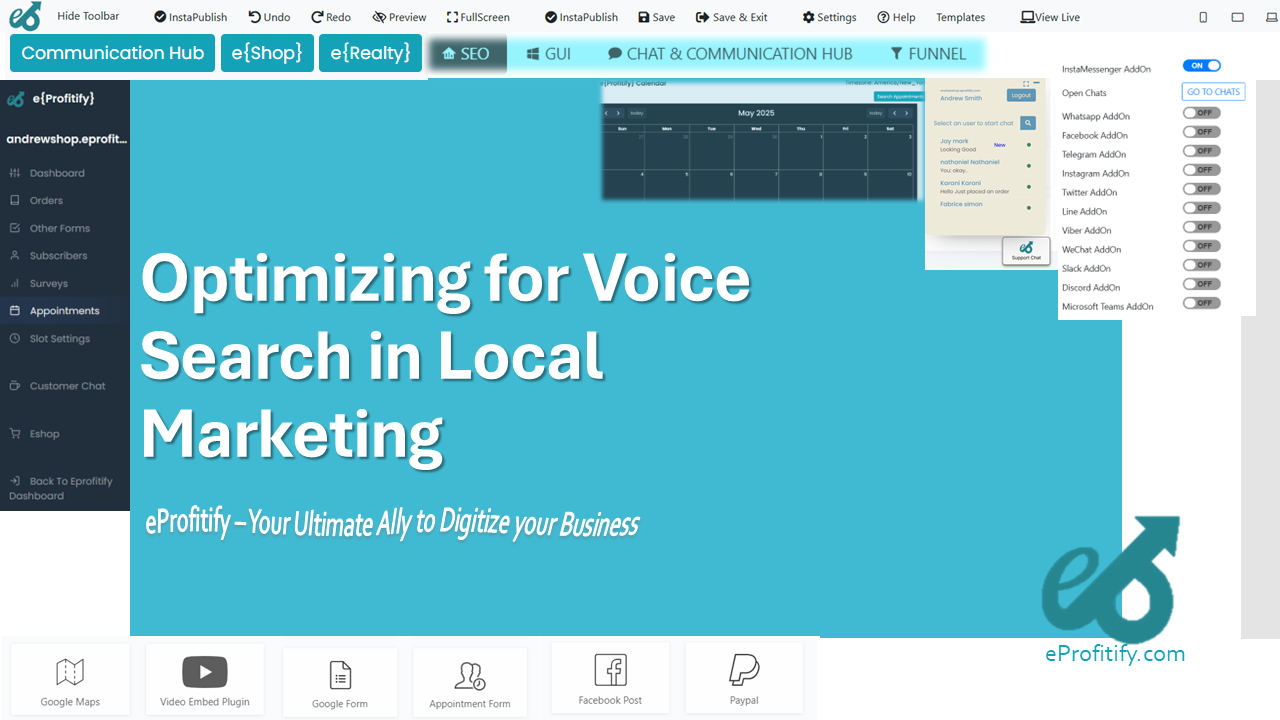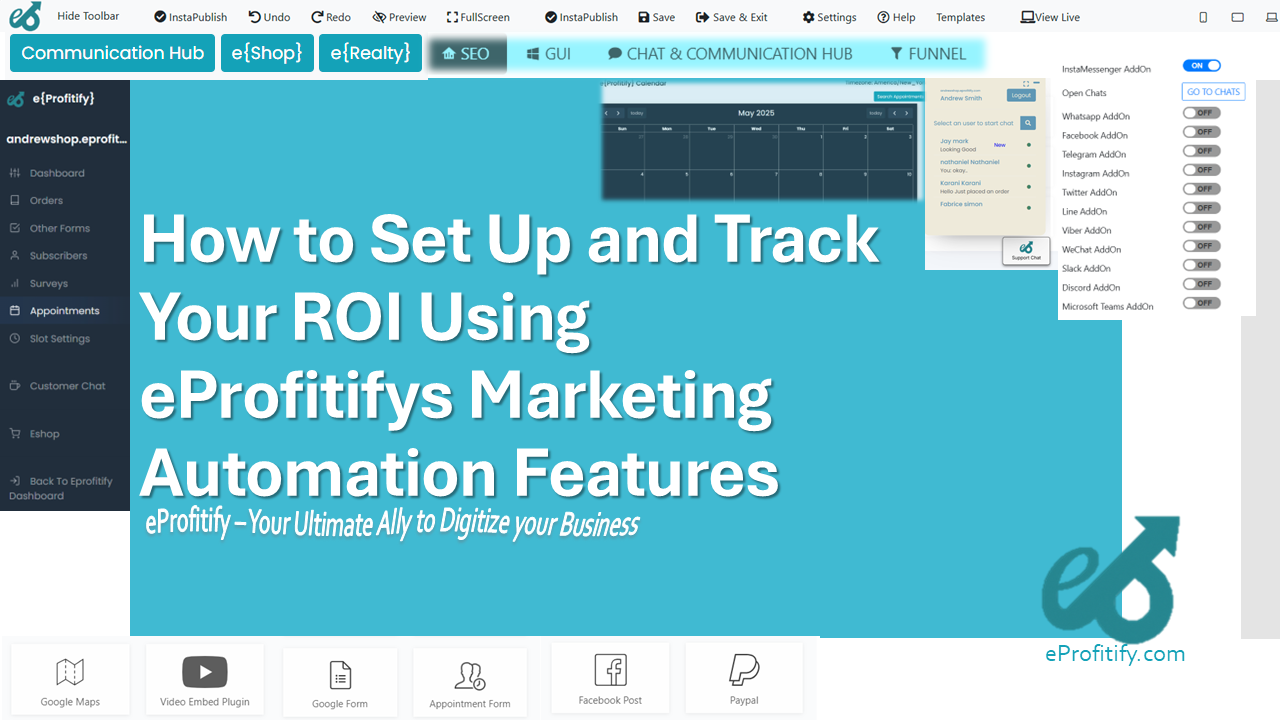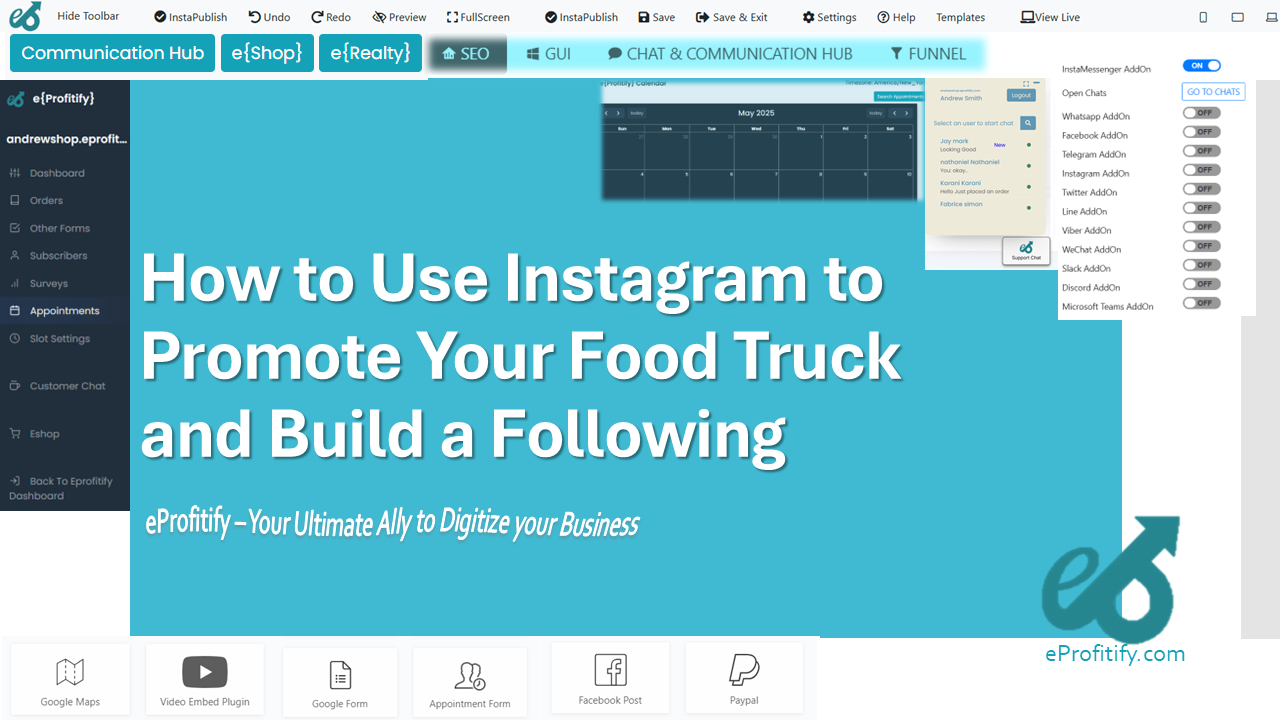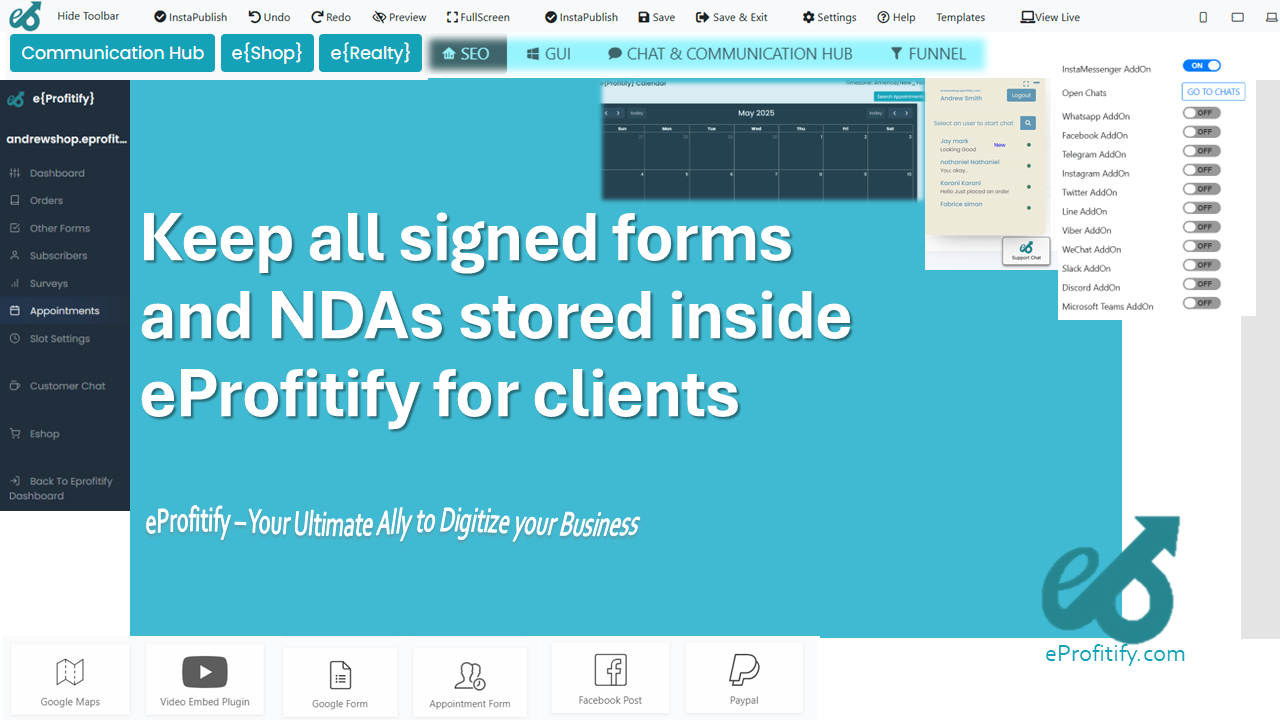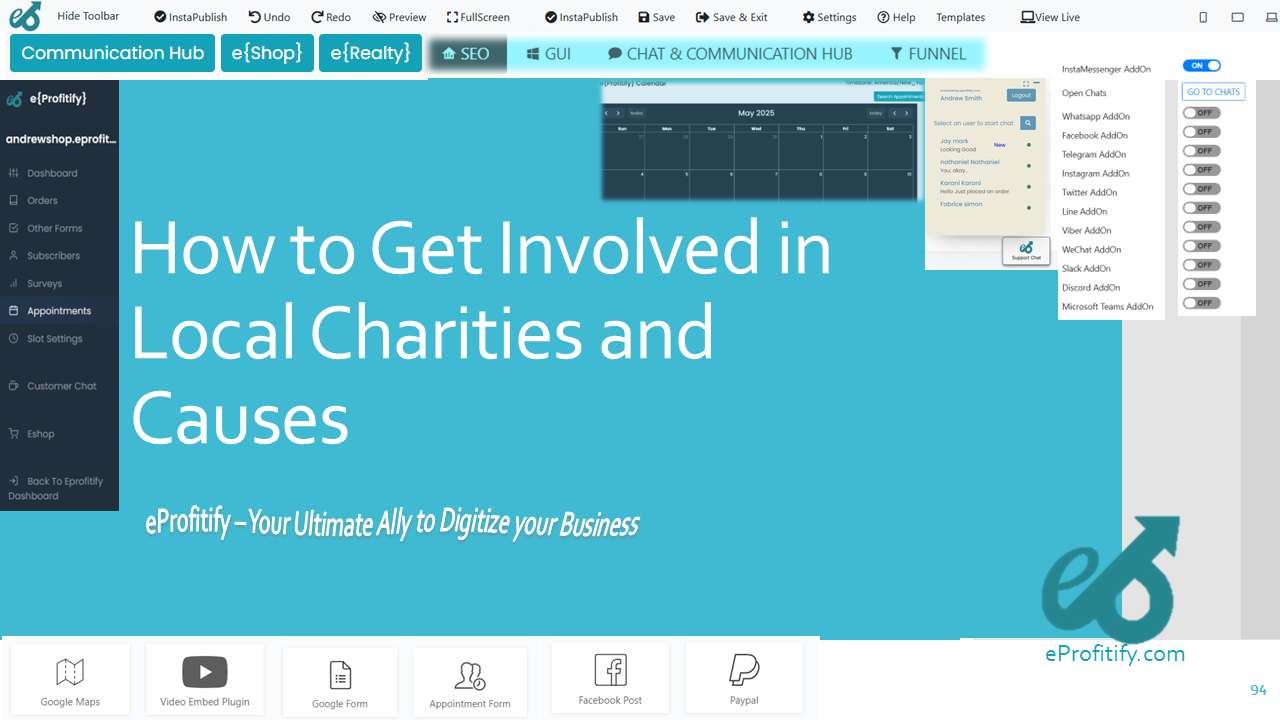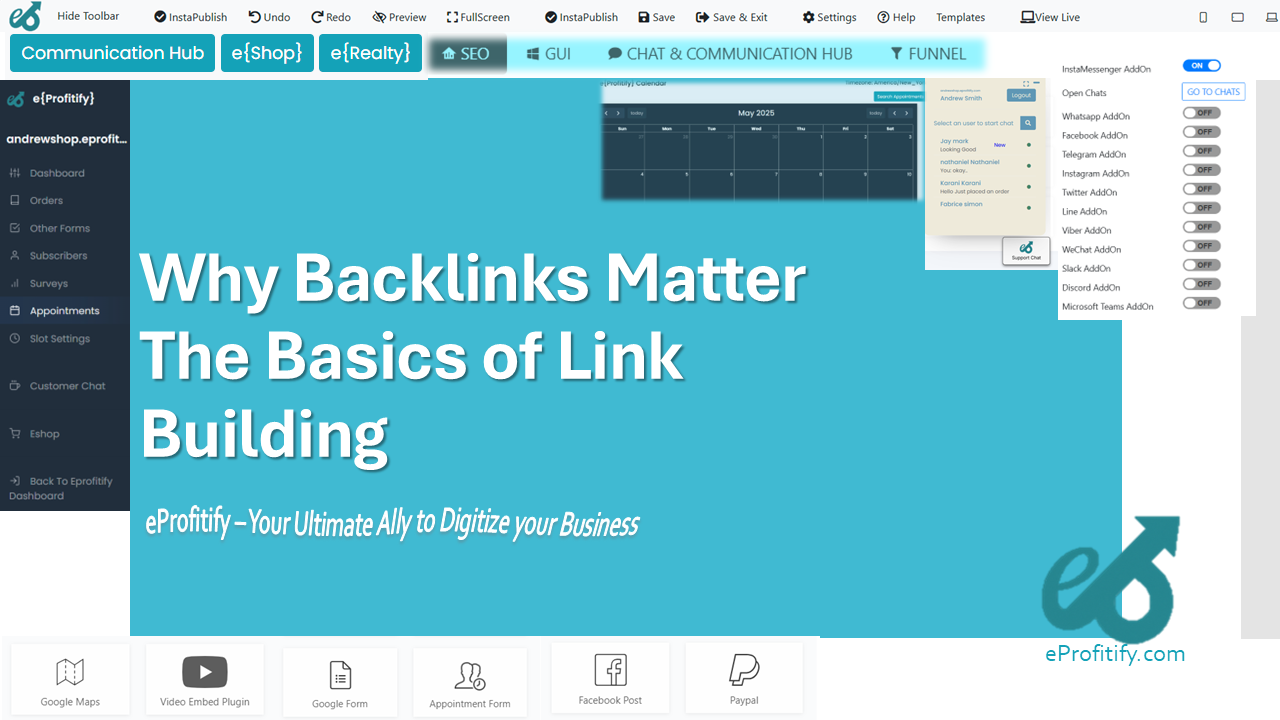How to Choose a Name for a Tech Startup
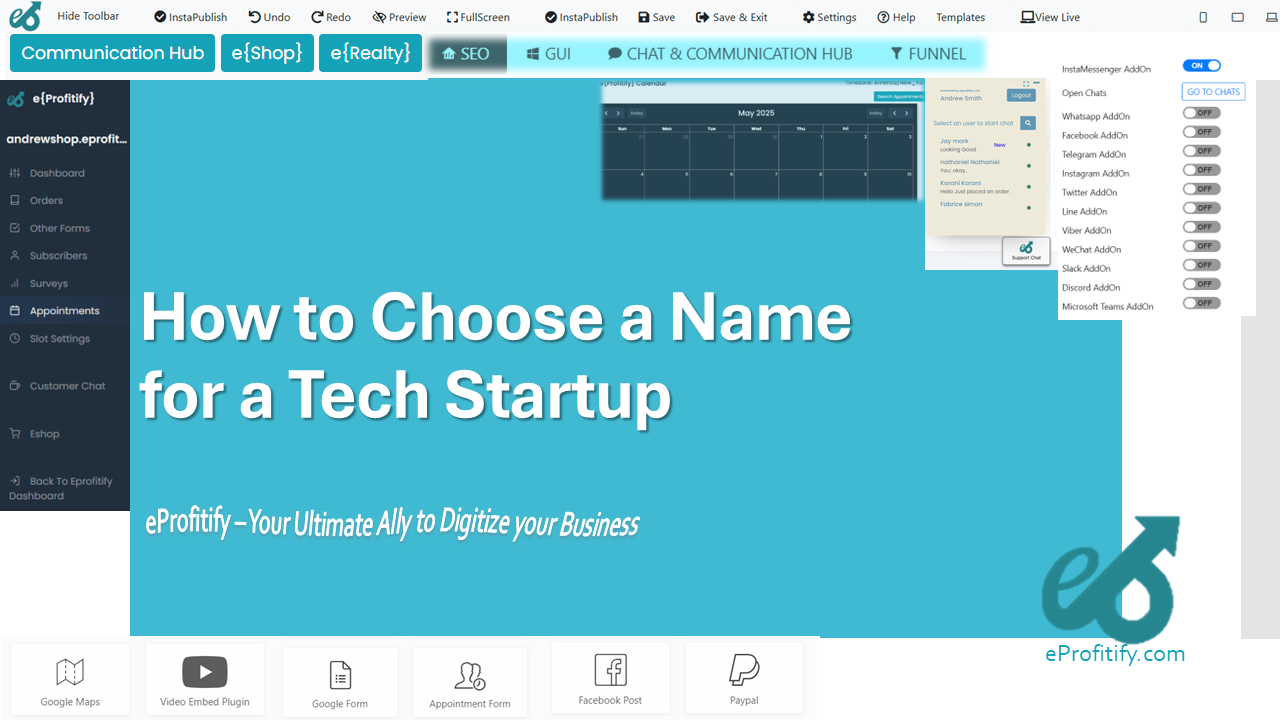
Schedule a LIVE Zoom call with an eProfitify Expert.
How to Choose a Name for a Tech Startup: A Comprehensive Guide
Naming a tech startup is a critical step that can influence its branding, marketing, and long-term success. A well-chosen name conveys your brand’s identity, differentiates you from competitors, and resonates with your target audience. However, the process is fraught with challenges, from legal considerations to ensuring domain availability. This guide explores actionable strategies for selecting a standout name and highlights how tools like Eprofitify—a leading website publishing and management platform with features like instant messaging, appointment management, ecommerce, and CRM—can streamline your startup’s operational needs.
The Importance of a Strong Tech Startup Name
A startup’s name is its first impression. Studies show that 77% of consumers make purchasing decisions based on a brand name, while 35% of startups attribute part of their early growth to a memorable name. Names like Zoom, Shopify, and Slack exemplify simplicity and relevance, enabling instant recognition in crowded markets. Conversely, poor naming choices can lead to confusion, trademark disputes, or even rebranding costs—30% of startups change their names within the first three years due to legal or cultural missteps.
Key Considerations When Choosing a Tech Startup Name
1. Memorability and Simplicity
Your name should be easy to spell, pronounce, and remember. Data reveals that 80% of consumers are more likely to recall brand names with fewer than three syllables. Avoid complex jargon or obscure terms. For example, Google (derived from “googol”) and Twitter (evoking short, quick communication) succeeded by balancing uniqueness with simplicity.
2. Relevance to Your Niche
Incorporate keywords or themes aligned with your product. A survey by Forbes found that 62% of top-performing startups use industry-related terms in their names, improving SEO and customer perception. Tools like Eprofitify, which offers integrated CRM and ecommerce solutions, emphasize “profit” and “simplicity” to signal value to entrepreneurs.
3. Domain Availability and Online Presence
Securing a matching domain is non-negotiable. Over 370 million domain names are registered globally, making availability a challenge. Use platforms like GoDaddy or Namecheap to check domains early. If your desired “.com” is taken, consider alternatives (e.g., Notion.so), but prioritize “.com” when possible—90% of consumers trust businesses with a “.com” domain. The average cost to acquire a premium domain is $2,000–$20,000, but startups often find creative, affordable alternatives.
4. Trademark and Legal Viability
Conduct a trademark search using USPTO or EUIPO databases to avoid litigation. 30% of startups face legal challenges over naming conflicts. For instance, Meta (formerly Facebook) spent millions in 2022 to resolve trademark disputes. Engage a legal expert if needed.
5. Future-Proofing and Scalability
Choose a name that grows with your business. Avoid overly narrow terms (e.g., DVDNow in the streaming era) and focus on adaptability. Amazon started as an online bookstore but chose a name evoking vastness, enabling expansion into diverse sectors.
6. Cultural and Linguistic Sensitivity
Verify translations and cultural connotations in global markets. 65% of consumers prefer brands using their native language, and cultural missteps can lead to PR disasters. For example, Nova (“no go” in Spanish) struggled in Latin America.
Tools and Resources for Naming Success
AI-Powered Name Generators
Platforms like Namelix and SquadHelp use algorithms to generate names based on keywords, saving time and sparking creativity. 45% of startups leverage AI tools for brainstorming.
Competitor Analysis
Analyze competitors’ names using SEMrush or Ahrefs to identify gaps. For example, if rivals use technical terms (e.g., CloudTech), opt for a friendlier tone (e.g., Dropbox).
Focus Groups and Feedback
Test names with target audiences via platforms like SurveyMonkey. 58% of startups refine names based on feedback to ensure resonance.
Streamline Operations with Eprofitify
While choosing a name is vital, efficient operations sustain growth. Eprofitify stands out as an all-in-one platform offering:
- Instant Messaging: Foster real-time communication with teams and clients.
- Appointment Management: Automate scheduling with AI-driven calendars.
- Ecommerce Integration: Launch online stores with built-in payment gateways.
- CRM Tools: Track customer interactions and boost retention rates.
- SEO Optimization: Improve search rankings with intuitive analytics.
Used by 50,000+ businesses, Eprofitify reduces administrative workloads by 40%, enabling startups to focus on branding and scaling. “Eprofitify’s holistic tools let us manage everything from customer data to sales—essential for a lean team,” says Jane Doe, CEO of TechFlow.
Final Steps: Validate and Launch
- Purchase the Domain and Social Handles: Secure consistent handles across platforms.
- File Trademarks: Protect your brand legally.
- Test Marketing Materials: Ensure the name works in ads, logos, and slogans.
- Leverage Analytics: Use tools like Google Analytics to monitor brand awareness post-launch.
Conclusion
A tech startup’s name is foundational to its identity. By prioritizing memorability, legal safety, and scalability—while using platforms like Eprofitify to automate operations—you position your business for lasting success. As the digital landscape evolves, a strategic name paired with robust tools will help you stand out and thrive.



